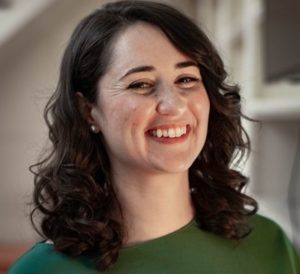The success of Illumina, Inc. and how it helped fight COVID-19
With our generation constantly marching towards the IT sector and playing safe by working for a multinational company is a common view these days. This doesn’t mean that working for the IT sector harms us rather the advent of AI and ML is making a great contribution to every field. But, how many of us consider working for a biotechnology company and contributing to mankind from a different perspective? Our world has been attacked by an infectious pathogen that can stop time and turn everything upside down. People dying, the economy at the edge, unemployment, and we do not know what else we will witness. And, in this crisis, we are looking up to companies like Illumina to make a breakthrough and save the world from drowning.
What is Illumina?
Illumina is an American-based biotechnology company that develops systems to analyze genetic variation and biological function. The company dragged down the price of human genome sequencing from $1 million to $1,000 in 2014. Research organizations around the world, the pharmaceutical companies, and also academic institutions buy the products of Illumina. The company was founded in 1998 by David Walt, Larry Bock, John Stuelpnagel, Anthony Czarnik, and Mark Chee. The company’s headquarters are currently based in San Diego, California.
About the founders
David Walt
David Walt went to the University of Michigan and acquired a bachelor’s degree in Chemistry. He later pursued his masters and Ph.D. in chemical biology. Currently, he is an Advisor at Illumina Ventures and a faculty member at the Harvard Medical School.
Larry Bock
Larry Bock was a famous American entrepreneur who died on 6th July 2016. He went to Bowdoin College and later to UCLA for his MBA. Apart from Illumina, Larry has also founded Nanosys, Caliper Life Sciences, and a few more companies.
John Stuelpnagel
John Stuelpnagel went to the University of California and has a bachelor’s degree in biochemistry. He was a venture capitalist at the CW group when he founded Illumina. Currently, he is the chairman of Fabric Genomics (also co-founder).
Anthony Czarnik
Anthony Czarnik is an American chemist who worked as an assistant professor at Ohio State University. Czarnik is the founder of RenoCares, a charity to support the drug addicts for rehab.
Mark Chee
Mark Chee went to the University of New South Wales followed by the University of Cambridge. He completed his Ph.D. in Molecular Biology. Currently, he is on the Board of Directors of Complete Genomics.
How Illumina was founded?
Back in 1998, the five founders established Illumina when Larry and John came to an understanding of what would be the BeadArray technology for Illumina. Shortly after founding the company, Illumina acquired Spyder Instruments which had the technology for high-throughput synthesis. In 2000, the company successfully filed its first IPO. The next year, the company started the new service, single nucleotide polymorphism genotyping.
Growth and Expansion
Eventually, the company started growing and designing solutions that can make our lives better. In 2007, Illumina acquired Solexa, a British company for approximately $600 million. Solexa was famous for commercializing genome sequencing technology who also bought the DNA colony sequencing technology in 2004. Illumina from the very beginning put immense effort to bring down the sky-high cost required for this kind of analysis and sequencing. In 2009, the company started its service for personal full genome sequencing for $48,000 which dropped to almost $19,000 by the next year.
Until 2010, Illumina sold systems and solutions only for research purposes but in 2010 it received approval for clinical tests as well. In 2011, the company acquired Epicentre Biotechnologies and next year launched HiSeq 2500, a very successful product of Illumina. This year the company also launched a cancer analysis service.
Famous people like Bill Gates and Jeff Bezos invested $100 million in Series A funding of the company. Since Illumina was working in the field of cancer testing as well, it partnered with Philips in 2017 to offer integrated genomic solutions for oncology. This year the company also opened its first commercial and customer training center.
How Illumina is fighting COVID-19?
Today, Illumina has provided solutions to more than 10,000 labs over 115 countries. And, due to the trust, they have built over time they are now connecting the local and global resources to fight against the pandemic. Next-generation sequencing or NGS is claimed to be very crucial for the study of patients during this pandemic. Illumina said that NGS can help gain information about patients and create a genetic tree that can show the path of transmission of this virus between two patients.
In response to this, the company designed Illumina COVIDSeq Test which is the first NGS test to receive emergency authorization use from the FDA. It can be only used in the US-based laboratories to perform tests at moderate and complex levels. The software toolkit of Illumina for COVID-19 has also been made free. The company is still working vehemently to help combat COVID-19 around the globe.

Annasha Dey is an NIT student, who apart from studying engineering is also a content writer. She has a great interest in photography, writing, reading novels, and travelling as well. She is a foodie who loves socializing and hanging out with her friends. She is also a trained Kathak dancer and a big fashion enthusiast. Dey also loves watching TV series, which includes F.R.I.E.N.D.S. and Big Bang Theory. To be a better writer she prefers to read more


